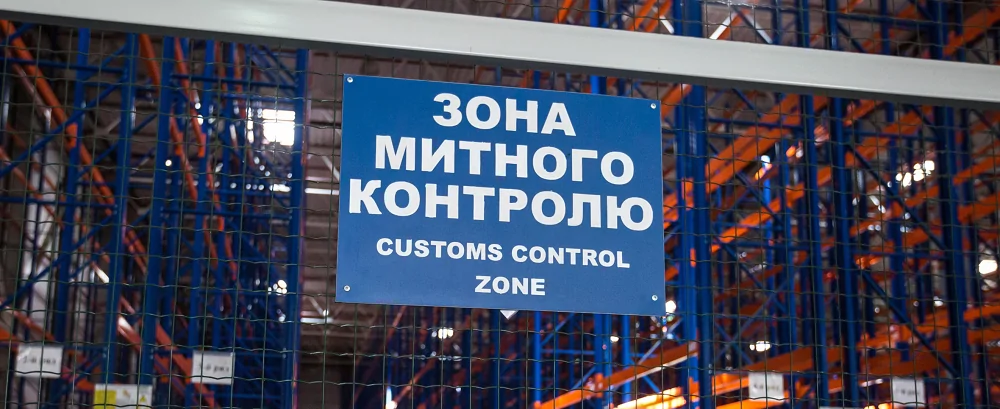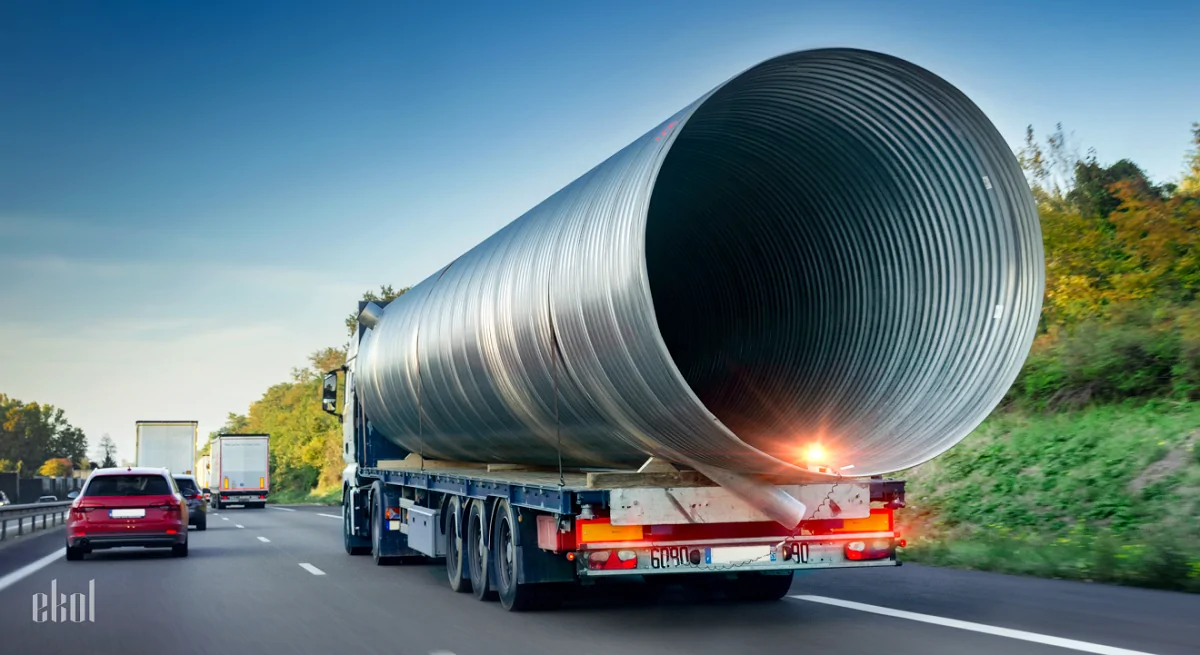Customs Rules of Ukraine 2025: Your Complete Guide to Import, Export and Customs Clearance

The basic principles of customs control cover all procedures regulating the movement of goods across Ukraine’s borders. To understand the import limits, it’s important to know that customs authorities monitor, register, and verify declarations, classify goods, apply tariffs, and check certificates and licences.
Let’s take a closer look at the customs rules of Ukraine, so you can cross the border smoothly while staying compliant with the law.
Importing Goods into Ukraine for Individuals
Imagine you are crossing the border with personal items or gifts. At this moment, the key question is: What is the maximum value of goods you can bring into Ukraine duty-free?
General limits:
| Category | Duty-Free Limit |
| Personal items (max 1 unit each) | Up to €500 (50 kg max) if crossing once every 72 hours. For air travel – up to €1,000 (airline weight rules apply). |
| Food products | Up to €200, subject to restrictions. |
| Cash | Up to €10,000 (or equivalent) without declaration. |
If these limits are exceeded, a declaration is required along with proof of value — especially for electronics. The declarant (individual or broker) must ensure correct documentation and interaction with customs.
When Declaration and Duty Payment Are Mandatory
To avoid fines and complications, it’s essential to know when goods require customs clearance and duty payment.
Mandatory declaration applies when:
- Goods exceed €200 or more than one electronic item — treated as commercial cargo.
- Gifts or parcels worth over €150 — subject to VAT.
- Total value exceeds €10,000 — full customs procedures apply.
These regulations are not designed to complicate your life, but to make logistics more predictable and transparent.
Prohibited and Restricted Goods
Ukraine enforces clear rules on what may be imported, and which items are prohibited or require special permits.
- Prohibited items:
- Weapons & ammunition. According to Ukrainian legislation, importing weapons without the appropriate permit is illegal. For lawful transportation, a permit must be obtained from law enforcement authorities.
- Narcotics & psychotropic substances. Import of narcotic drugs, psychotropic substances and precursors without proper documentation is prohibited. For medical use, a licence and permit from the State Service of Ukraine on Medicines are required.
- Pornographic materials. Under Article 301 of the Criminal Code of Ukraine, the import, production, sale and distribution of pornographic items is punishable by fines, arrest or imprisonment.
- Restricted items (require special permits):
- Cultural property. Moving cultural valuables (art, antiques) requires a special permit from the Ministry of Culture of Ukraine, in line with Article 374 of the Customs Code of Ukraine.
- Medicinal products. To import medicines into Ukraine, it is necessary to comply with the requirements of Resolution No. 287 of the Cabinet of Ministers of Ukraine dated 14 March 2025, which regulates the procedure for bringing medicinal products into the country.
- Restrictions on Importing Goods into Ukraine
- Meat and dairy products. Import is prohibited without valid veterinary certificates.
- Seeds and plants. Must be accompanied by a phytosanitary certificate confirming they are free from pests and diseases.
- Alcohol and tobacco products. Adults (18+) may bring across the border up to 1 litre of spirits, 2 litres of wine, 5 litres of beer, 40 cigarettes or 50 grams of tobacco duty-free.
These rules are aimed at ensuring public safety and protecting Ukraine’s national interests. Breaches of customs regulations may lead to fines, confiscation of goods, or even criminal liability.
Rules for Exporting Goods from Ukraine
If you are exporting goods – for example, gifts or personal belongings – it is essential to comply strictly with the established procedures.
Stages of clearance:
- Submission of a declaration via the electronic customs system.
- Completion of an inspection by customs authorities.
- Presentation of the necessary supporting documentation: certificates, licences, statements.
- Receipt of confirmation, after which the goods may legally be exported.
Examples:
| Situation | Required steps |
| Personal items up to €200 | No declaration or documentation required |
| Goods exceeding €200, commercial consignments | Declaration, supporting documentation, possible duty |
| Cultural or archaeological objects | Special permit and certificate required |
This regulatory framework ensures compliance with export rules. Absence of the required documents constitutes grounds for confiscation or administrative penalty.

Customs Aspects of International Postal and Express Shipments
For smooth customs clearance of international postal and express consignments, it is important to observe the governing rules on the movement of consumer goods. These provisions depend primarily on the declared value and intended use of the shipment. Proper understanding of when a consignment is subject to declaration and taxation prevents delays and additional costs at customs.
| Condition | Thresholds | Requirements |
| Duty-free import | Up to €150 | No customs payments required |
| Taxable | €150.01 – €10,000 | Duty (10%) and VAT (20%) applied on the amount exceeding the threshold |
| Commercial import | Over €10,000 | Full customs clearance required under business regulations |
In addition to financial thresholds, certain goods such as batteries or electronic devices containing lithium cells are categorised as hazardous. Their documentation must comply with international standards; otherwise, customs inspectors may detain them for further checks.
Customs Clearance of Commercial Cargo (for Businesses)
For enterprises engaged in import or export, customs clearance is a critical process. It includes:
- Verification of documentation: invoice, packing list, certificates.
- Mandatory submission of a customs declaration through the electronic system.
- Classification of goods under the Ukrainian Classification of Foreign Economic Activity (UKT ZED).
- Calculation of tariffs, duties, VAT and excise.
- Customs inspection and potential additional audits.
- Obtaining special licences or sanitary certificates where required.
Businesses are strongly advised to engage licensed customs brokers or maintain in-house compliance departments familiar with Ukrainian customs law, to ensure correct preparation of documentation. This guarantees that import and clearance procedures are completed lawfully, without penalties or delays.
Services of Professional Logistics Companies
In practice, when transport, storage and delivery are involved, professional logistics providers play a decisive role. Such operators assume full responsibility – from document preparation to transportation and payment of duties. They are fully conversant with customs rules for duty-free import, import procedures, tariffs, certificates and licences, and they minimise risks during clearance.
Advantages:
- Saving time and resources.
- Reduction of errors in documentation.
- Timely deliveries, even on complex routes.
- Professional consultancy in matters of customs control and compliance.
Cooperation with logistics providers is a strategic choice for businesses seeking efficiency and legal certainty. Their expertise ensures correct filing of registration documents and expedited passage of goods through customs.
Common Errors and How to Avoid Them
The main problems in international logistics arise from mistakes in customs clearance. To avoid risks, businesses should pay particular attention to:
- Incorrect determination of UKT ZED codes in the declaration.
- Misstatement of customs value in invoices.
- Absence of mandatory certificates or licences.
- Lack of awareness of current prohibitions and restrictions on imports into Ukraine.
Timely verification of these details minimises costs associated with goods being held at customs and helps maintain stable business relations.
Liability for Breach of Customs Rules
Failure to comply with customs requirements is punishable by fines, confiscation of goods, or criminal prosecution.
Liability arises in cases of:
- Failure to submit a declaration.
- Exceeding duty-free import thresholds.
- Export of contraband, prohibited goods or cultural property without permits.
- Misclassification or deliberate undervaluation of goods.
Sanctions provided under the Customs Code of Ukraine include:
- Fines ranging from 50% to 150% of the unpaid customs charges.
- Confiscation of goods in cases of serious violations (e.g. smuggling).
Investigations into customs-related criminal offences are conducted by the Bureau of Economic Security (BES), rather than the police.
Conclusions
The customs system is not merely bureaucracy, but a robust framework that safeguards security, legality and transparency in international trade. Knowledge of Ukraine’s customs rules and legislation is the essential foundation for lawful movement of goods.
Modern logistics companies relieve businesses of the most complex aspects, enabling them to focus on growth. Cooperation with Ekol Logistics and similar operators ensures continuity of supply, accurate clearance, and confidence in even the most complex trade scenarios.
FAQ
Can goods be sent to Ukraine by post without customs payments?
Yes. If the shipment value does not exceed €150, no duty or VAT is charged. Above this threshold, 20% VAT and customs duty apply.
Which goods are subject to mandatory phytosanitary or veterinary control?
Seeds, plants, animals, meat and dairy products. Appropriate certificates and permits are required for import.
What happens if prohibited items are discovered during customs inspection?
Such goods are seized by customs. The individual may face fines, and in some cases criminal liability.
read more










